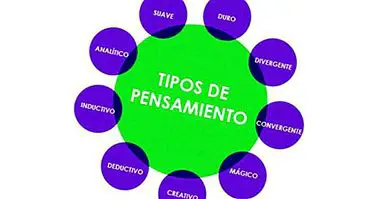Lazy people are smarter (statistically)
Many people would have a great facility to feel identified as lazy, but intelligence is somewhat more difficult to measure and, although each may have an idea about what their intellectual level, it is difficult to have references on this without resorting to tests of CI.
However, a recent study has found a link between these two dimensions of our mind. Specific, It has been observed that the smartest people are also the most likely to idle during the weekdays .
So, although lazing excessively could lead to isolation and therefore to the diminution of the capacity to think with agility, to keep still and without doing apparently great thing can be an indication that we like to dedicate time and effort to squeeze our intelligence .
The smart ones are less active
This investigation, conducted by Todd McElroy from Florida Gulf Coast University and published in the Journal of Health Psychology, points out that people who show a greater need for cognitively stimulating and motivating tasks spend less time than others doing tasks that require physical activity.
The need to embark on cognitively stimulating tasks, which is related to the level of intelligence, gives an idea of the way in which we tend to keep mentally active participating in novel tasks, which pose a challenge and move away from monotony and repetition.
Why does this happen? The key is in the cognitive challenge
This discovery is related to the idea that the challenges and hobbies that occur only in our brain and are not based on the performance of physical activities (understood as tasks for which it is necessary to use various muscle groups, because thinking is also a end of accounts, a physical process) are a hobby and a task so stimulating that people accustomed to them do not need to move too much.
A) Yes, this research serves to reinforce the idea that smarter people are not as likely to fall into boredom like the others, since they tend to take advantage of the moments in which they do not exercise physical efforts to think, reflect, perform mental exercises ... etc. On the other hand, people who do not stand out especially for their intelligence would have more reasons to look for entertainment in direct interaction with their environment.
How was the investigation conducted?
These researchers from the Florida Gulf Coast University relied on the use of tests to obtain information about a series of volunteers. Among the questions that appeared in the tests were several designed to explore the tendency of each person towards the undertaking of cognitively demanding activities.
For example, these people had to say if they were more or less in agreement with statements such as "I really enjoy finding new solutions to problems".
From these data, the researchers selected 30 of the people most likely to exercise their cognitive abilities and 30 others who presented the opposite characteristic, and they all placed a device on the wrist. This bracelet was used to trace their movements and issue data on their activity levels, and this information was collected for several days .
The results
People less likely to tackle cognitively demanding tasks moved more and showed significantly higher physical activation levels than the others, but, interestingly, this difference only appeared from Monday to Friday. During the weekends, this difference tended to disappear.
This last data has not yet been explained, so if you want to clarify this point will be necessary to conduct more research on this subject.



















